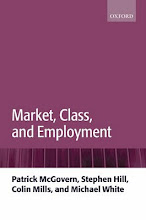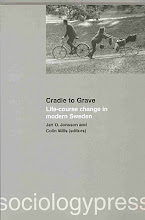My old colleague Vikki Boliver has just just posted a very nice piece about UCAS - the body that has sole responsibility in the UK for handling undergraduate admissions - and their very odd views about data.
The issue at stake is whether applicants to "elite" UK universities who are similar in all relevant respects apart from belonging to different ethnic groups have the "same" probability of getting an offer of a place. I don't know anyone who has claimed that there is no public interest in devoting resources to getting as good an answer as we can to this question. Indeed one can say exactly the same with regard to gender, social class and a whole bunch of other characteristics - some of which are explicitly the subject of equality legislation.
I'd actually go further and say that the very large proportion of the population that now makes applications to enter higher education have a right, as citizens, to know that the process they are going through is fair and that they can have confidence that they will not be discriminated against. And that right is not merely the right to hear bland assurances from interested parties but a right to actually see the evidence and the right to know that that evidence has been evaluated by parties independent of the admission process.
Though the data that UCAS holds tells only part of the story, it is a crucial part, and without independent scrutiny nobody is in a position to feel assured about anything. We are supposed to be living in an age of open government, but there are still organizations that don't seem to understand this.
UCAS itself is a charity rather than a direct arm of government but what it does is, I assume, supposed to serve the interests of the public. It certainly has an interest in keeping the cost of the application process to the public at a low level, or at least that is their explicit justification for their commercial arm UCAS Media whose profits are cycled back into the charity.
UCAS Media got itself into a spot of bother with the Information Commissioner's Office earlier this year for failing to give applicants "a clear option to avoid marketing" and being "unfairly faced with the default option of having their details used for commercial purposes". Naturally after getting a slap on the wrist for being a bit lax about the way that applicants' information was used to promote the interests of caffeine fuelled soft drinks companies the organization is sensitive about any suggestion that its data is used for anything other than pukka purposes. And quite right too.
But there is a world of difference between using applicants' contact details to generate income from the commercial sector - to be clear UCAS "...does not sell, disclose or give access to applicants' personal data for advertising or marketing purposes" though it does use these data to facilitate communications between commercial clients and the pool of applicants - and providing bona fide researchers with anonymized data for the purposes of auditing the fairness of the university application process. These are not remotely the same thing and shouldn't be thought about in the same way.
It is perfectly consistent for me to not want my personal details used to send commercial marketing in my direction while at the same time to want my anonymized data to be used by suitably qualified people within an appropriate regulatory framework to monitor whether the admissions process works in the public interest. At the moment UCAS rather bone headedly seems to not to recognize this distinction.
In many ways all this is rather fantastical. UCAS insists that it is right and proper to only release anonymized applications data to researchers for those applicants that have explicitly given permission for their data to be released. But this is to apply the wrong logic. Administrative data is already released - in a tightly regulated way - to genuine researchers without the explicit permission of those required to provide the data and without - as far as I know - there ever being the slightest danger of the disclosure of the identity of a single individual. The National Pupil Database is one example, the Census Sample of Anonymized Records is another and the ONS Longitudinal Study is a third. Access to UCAS micro data could be granted on exactly the same basis as it is granted to these. It really does no credit to UCAS to pretend that there are difficult technical and legal problems involved. All of these have been solved and are well understood.
The bottom line is this. Applicants to undergraduate courses in the UK have no choice but to apply through UCAS. They can't go anywhere else if the don't want their data to be used for anything other than the admission process. At the moment nobody is asking them whether they want the data they provide to be used to make sure that the process they have to go though is fair. It's not obvious that there is a public interest case for doing so, but if there was, what would we make of those who refused to allow their data to be used for that purpose?










No comments:
Post a Comment